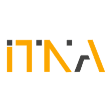HP Nigeria has extended funding and technological support to two local nonprofit organisations, SheCode Africa and Slum2School Africa, under the 2025 cohort of the HP Digital Equity Accelerator programme.
The support package, unveiled during a face-to-face engagement held at HP’s Lagos office, includes $100,000 in direct funding from the HP Foundation and HP technology worth an additional $100,000 for each of the selected nonprofits.
The event marked a significant milestone in HP’s ongoing commitment to fostering digital inclusion and empowering communities that have been historically marginalised in the digital economy.
The initiative is part of HP’s global Digital Equity Accelerator, which equips grassroots organisations with the tools, mentorship, and technical resources to scale their digital inclusion efforts.
In Nigeria, SheCode Africa and Slum2School Africa were selected from a competitive pool of nonprofits across different countries, following what HP described as a rigorous selection process focused on impact, innovation, and potential for scale.
Speaking at the event, Country Director for HP Nigeria, Emmanuel Eze, emphasised that HP’s mission extended beyond selling technology.
“HP is a household name, and while we are here to do business, our greater purpose is to make an impact in the world,” he said in a statement on Thursday.
He added, “That is why we forge meaningful partnerships like the ones we have with Slum2School Africa and SheCode Africa. Working with organisations like these gives us more platforms to reach more people and truly live out our commitment.”
The support from HP covers not only financial assistance and equipment but also six months of tailored capacity-building support, which includes mentorship, technical assistance, content development, and tools for impact measurement.
According to the company, the package is designed to help the nonprofits strengthen operations and scale their digital equity solutions sustainably.
Marketing Coordinator for HP Central Africa Francophone, Josephine Kolawole, noted that Nigeria’s inclusion in the 2025 cohort reflected the local team’s efforts and strategic vision.
“We pitched for this alongside several countries and won by showcasing our profound impact and unwavering commitment to digital equity here in Nigeria,” she said. “This win underscores our dedication to creating opportunities through technology.”
The face-to-face event brought together executives from HP and the two selected nonprofits. It served as a platform to recognise the organisations’ contributions to advancing access to digital education and tools, especially among children and young women in underserved areas.
Founder and Executive Director of Slum2School Africa, Orondaam Otto, stated that the grant would go a long way in helping the organisation meet its ambitious goal of reaching more vulnerable children with tech-based learning.
“For us, the future of work hinges on how we adequately prepare children with technological skills and how they process information with the speed obtainable in today’s world,” he said.
“Our mission is to bridge the gap for the high percentage of children who are technically handicapped, providing access to education for those living in underserved communities.”
Slum2School Africa has been widely recognised for its work in supporting children from marginalised backgrounds, deploying both offline and digital strategies to enhance access to education. With HP’s backing, the organisation intends to further develop its digital learning platforms and reach more remote communities.
The Founder and Executive Director of SheCode Africa, Ms Ada Nduka Oyom, noted that the support from HP would help the women-focused nonprofit move closer to its target of empowering 100,000 women and girls across Africa by 2030.
“The HP Digital Equity Accelerator will play a significant role in achieving that goal,” she said.
SheCode Africa has already impacted over 65,000 beneficiaries and built a community of more than 50,000 members, spanning 40 chapters across the continent. Through a range of initiatives, including the STEM A Girl programme, laptop scholarships, and sponsored technical courses, the organisation is addressing the gender gap in STEM education and digital careers.
Participants at the event were also given a guided tour of the HP Nigeria office, where they interacted with various HP technologies and witnessed how these tools are enabling transformation across education and social impact sectors.
The HP Digital Equity Accelerator, launched in 2022 in collaboration with the Aspen Institute, supports nonprofits worldwide that are working to close digital gaps in their communities.
The programme focuses on four pillars: access to hardware, connectivity, digital literacy, and relevant content. Since its inception, the initiative has impacted over 45 million people globally. HP says it aims to reach at least 150 million people by 2030.
The inclusion of Nigeria in the 2025 cohort, according to HP, aligns with the country’s growing need to equip its large youth population with digital tools and skills required to compete in a modern economy.
According to stakeholders, the Accelerator’s presence in Nigeria signals a vote of confidence in the potential of grassroots innovation to reshape access to technology and education.







